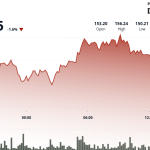A New York judge’s decision granting Celsius Network’s $4 billion lawsuit against Tether proceeds represents a significant expansion of US legal jurisdiction, according to legal analyst Peter Vas.
“This ruling marks a pivotal moment that could potentially reshape the legal landscape for cross-border cryptocurrency disputes,” said Peter Vas, partner at Spencer West. “It reinforces that US courts may assert jurisdiction if the alleged misconduct involves US-based communications, personnel, or financial accounts.” Vas added the decision sends a strong signal to non-US domiciled firms operating with US connections.
The ruling underscores a message explicitly targeting firms operating across borders. It can be viewed as a direct warning to global cryptocurrency companies that incorporation abroad does not necessarily insulate them from American legal processes. This becomes particularly relevant as Washington moves closer to enacting landmark stablecoin legislation.
Background: The Celsius Bankruptcy
Celsius declared bankruptcy in June 2022 following the 2022 crypto market collapse. The company’s downfall was precipitated by a series of crypto-related scandals that triggered massive withdrawals from users.
In related developments, Celsius CEO Alex Mashinsky was sentenced to 12 years in prison this year.
Core Allegations
The lawsuit centers on a $820 million loan Celsius sought from Tether in late 2022. Celsius pledged 39,500 Bitcoin ($820 million valuation at the time) as collateral, with a ten-hour grace period specified in the agreement for handling margin calls.
Allegedly, when Bitcoin prices collapsed due to the widespread crypto crisis involving the Terra ecosystem, Tether liquidated Celsius’ collateral after only nine hours. Furthermore, Celsius claims Tether sold the seized Bitcoin shortly after, when prices were as low as around $20,000.
Legal Significance
Celsius contends Tether’s actions were not only a breach of contract but also demonstrated preferential treatment of its creditor position relative to other claimants. Should Celsius prevail in its entirety, the lawsuit could compel stablecoin issuers and financial institutions to revise loan agreements and reevaluate their liquidation protocols during market stress.
Crucially, this case signals that geographical location may no longer automatically shield large financial technology firms from US courts, especially those interacting with or affecting the US financial system. The outcome is significant given the $263 billion stablecoin sector faces intensified regulatory scrutiny.












